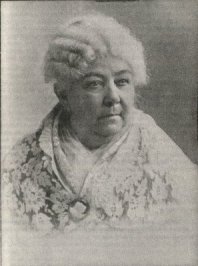

Genesis xxxix.
POTIPHAR'S wife surpasses all the women yet mentioned in perfidy and dishonor.
Joseph's virtues, his dignity, his honor, go far to redeem the reputation of his ancestors, and the customs of his times. It would have been generous, at least, if the editor of these pages could have given us one woman the counterpart of Joseph, a noble, high-minded, virtuous type. Thus far those of all the different nationalities have been of an ordinary low type. Historians usually dwell on the virtues of the people, the heroism of their deeds, the wisdom of their words, but the sacred fabulist dwells on the most questionable behavior of the Jewish race, and much in character and language that we can neither print nor answer.
Indeed the Pentateuch is a long painful record of war, corruption, rapine, and lust. Why Christians who wished to convert the heathen to our religion should send them these books, surpasses all understanding. It is most demoralizing reading for children and the unthinkable masses, giving all alike the lowest possible idea of womanhood, having no hope nor ambition beyond conjugal unions with men they scarcely knew, for whom they could not have had the slightest {sic} sentiment of friendship, to say nothing of affection. There is no mention of women except when the advent of sons is announced. When the Children of Israel go down into Egypt we are told that the wives of Jacob's sons were taken too, but we hear nothing of Jacob's wives or concubines, until the death and burial of Leah is incidently mentioned. Throughout the book of Genesis the leading men declare from time to time that the Lord comes to them and promises great fruitfulness. A strange promise in that it could only be fulfilled in questionable relations. To being with Abraham and go through to Joseph, leaving out all conjugal irregularities, we find Abraham and Sarah had Isaac, Isaac and Rebekah had Jacob and Esau, Jacob and Rachel (for she alone was his true wife), had Joseph and Benjamin. Joseph and Asenath had Manassah and Ephraim. Thus giving the Patriarchs just seven legitimate descendants in the first generation. If it had not been for polygamy and concubinage, the great harvest so reckless promised would have been meagre indeed.
Genesis xli
This is all we ever hear of Asenath, that she was a good woman, probably worthy of Joseph, it is fair to infer, for had she been otherwise her evil deeds would have been recorded. A few passing remarks where ever we find the mention of woman is about all we can vouchsafe. The writer probably took the same view of the virtuous woman as the great Roman General who said "the highest praise for Cæsar's wife is that she should never be mentioned at all."
The texts on Lot's daughters and Tamar we omit altogether, as unworthy a place in the "Woman's Bible". In the remaining chapters of Genesis, the brethren of Joseph take leave of each other; the fathers bless their sons and grandsons, and also take leave of each other, some go to remote parts of the country, some to die at a ripe old age. As nothing is said of their wives and daughters, the historian probably new nothing of their occupations nor environments. Joseph was a hundred and ten years old when he died. They embalmed him according to the custom in Egypt, and put him in a coffin, and buried him in the land of his fathers, where his brethren had promised to take his bones after death to rest with his kindred at last.
E.C.S.
The Literal translation of the first verse of chapter xxxix of Genesis is as follows:
"And Joseph was brought down to Egypt, and Potiphar, Pharaoh's eunuch, chief of the cooks, and Egyptian bought him of the Ishmaelites who brought him down."
These facts which are given in Julia Smith's translation of the Bible throw a new light on the story of Joseph and the woman who was Potiphar's wife only in name.
L.D.B.